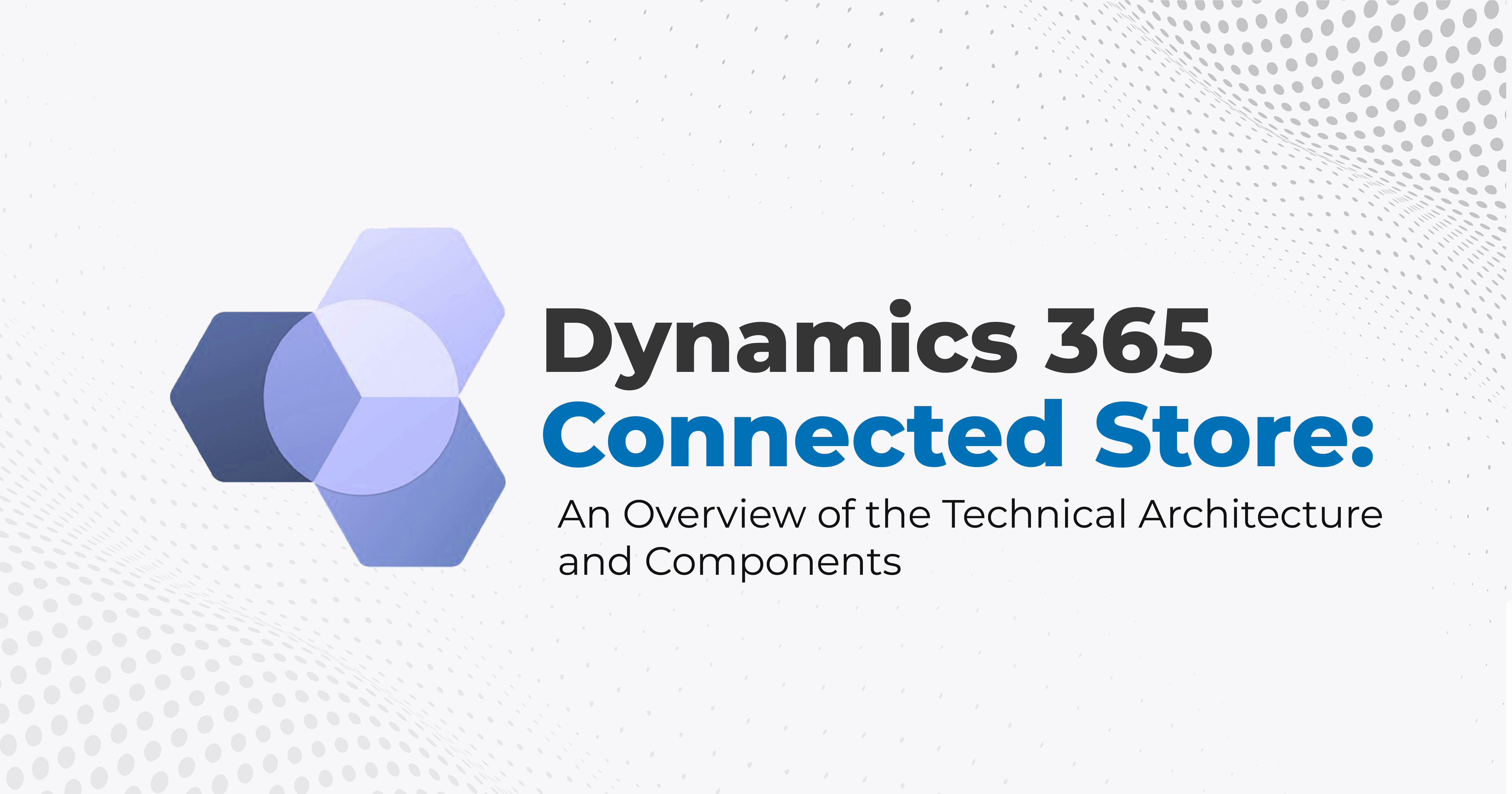Dynamics 365 Connected Store is a powerful solution that leverages the Internet of Things (IoT) and artificial intelligence (AI) to help retailers optimize their operations and improve the customer experience. But what exactly goes into the technical architecture of this solution?
In today’s post, we’ll take a deep dive into the technical components and architecture of Dynamics 365 Connected Store. We’ll explore how IoT sensors, Azure services, and AI algorithms work together to collect, analyze, and act on real-time data from retail environments.
By the end of this post, you’ll have a better understanding of how Dynamics 365 Connected Store can help retailers stay competitive in an ever-changing retail landscape. So, let’s get started!
Components of D365 Connected Store
IoT Sensors and Devices
The first component of Dynamics 365 Connected Store is the IoT sensors and devices that are deployed in the retail environment.
These devices include cameras, beacons, RFID readers, and other sensors that capture data on customer behavior, store operations, and inventory levels. The data collected by these devices is sent to the cloud for further analysis.
Azure IoT Hub
Azure IoT Hub is the cloud service that manages the IoT devices and sensors deployed in the retail environment.
It provides a secure and reliable way to connect, monitor, and manage these devices. The IoT Hub also acts as a message broker that routes data from the IoT devices to other Azure services for processing.
Azure Event Grid
Azure Event Grid is another Azure service used in the Dynamics 365 Connected Store architecture. It is used to manage and route events generated by IoT devices and sensors to other Azure services. It provides a simple and reliable way to trigger serverless functions or workflows in response to events.
Azure Stream Analytics
Azure Stream Analytics is an Azure service that provides real-time data analysis. It is used in the Dynamics 365 Connected Store architecture to analyze the data generated by IoT devices and sensors.
The Stream Analytics service provides a way to filter, transform, and aggregate data in real time. The analyzed data is then sent to other Azure services for further processing.
Azure Functions
Azure Functions is a serverless computing service used in the Dynamics 365 Connected Store architecture. It is used to respond to events triggered by IoT devices and sensors.
Azure Functions can be used to perform real-time analysis, execute business logic, or trigger other actions in response to events.
Azure Cosmos DB
Azure Cosmos DB is a globally distributed, multi-model database service used in the Dynamics 365 Connected Store architecture. It is used to store and manage the data generated by IoT devices and sensors. Cosmos DB provides a way to store and retrieve large volumes of data with low latency and high availability.
Power BI
Power BI is a business analytics service used in the Dynamics 365 Connected Store architecture. It is used to visualize and analyze the data generated by IoT devices and sensors. Power BI provides a way to create interactive dashboards and reports that can be used to monitor store performance, track key metrics, and identify trends.
Dynamics 365 Commerce
Dynamics 365 Commerce is the retail management software used in the Dynamics 365 Connected Store architecture. It provides a way to manage store operations, inventory, and sales. The data generated by the IoT devices and sensors are in Dynamics Integration to provide real-time insights into store operations.
Workflow for the Dynamics 365 Connected Store Architecture
- IoT devices are deployed in the retail environment, such as cameras, beacons, and RFID readers.
- The IoT devices capture data on customer services, store operations, and inventory levels.
- The data collected by the IoT devices is sent to Azure IoT Hub, which manages and monitors the IoT devices.
- Azure Event Grid routes the events generated by the IoT devices to other Azure services for further processing.
- Azure Stream Analytics analyses the data collected by the IoT devices in real time, providing real-time insights into store operations.
- Azure Functions respond to events triggered by the IoT devices and execute business logic or trigger other actions in response.
- The data generated by the IoT devices and processed by Azure Stream Analytics is stored in Azure Cosmos DB.
- Power BI creates interactive dashboards and reports that visualize and analyze the data generated by IoT devices, providing real-time insights into store operations.
- Dynamics 365 Commerce is integrated with the data generated by the IoT devices and processed by Azure services, providing real-time insights into store operations and inventory management.
- Retailers can use the real-time insights provided by Dynamics 365 Connected Store to optimize their operations and improve customer experiences.
The architecture of Dynamics 365 Connected Store is designed to provide a comprehensive and scalable solution for retailers, leveraging the power of Azure IoT services and Dynamics 365 Commerce to create a real-time view of retail operations.
Why Choose Us
Stallion Solutions is a leading provider of end-to-end digital transformation solutions and services, including implementation, customization, and support for Dynamics 365 Connected Store. Our team of experts has extensive experience in deploying and managing IoT solutions for retail clients across various industries.
We offer a comprehensive range of services to help our clients maximize the benefits of Dynamics 365 Connected Store, from consulting and solution design to implementation and ongoing support.
Contact us today to learn more about how we can help you leverage the power of Dynamics 365 Connected Store for your retail operations.



